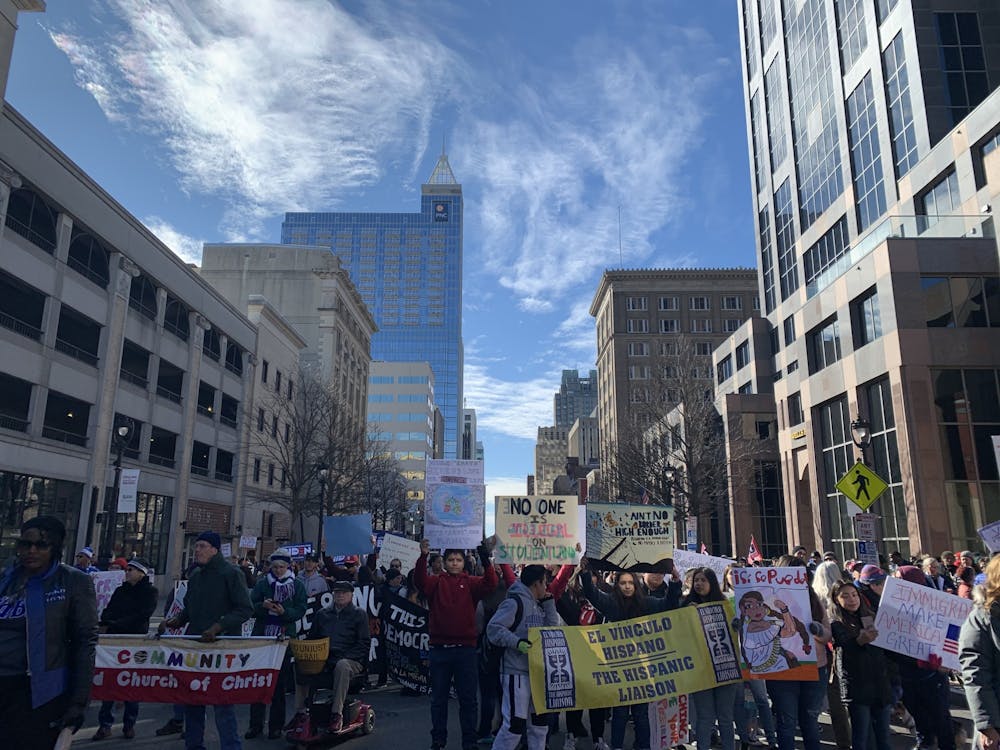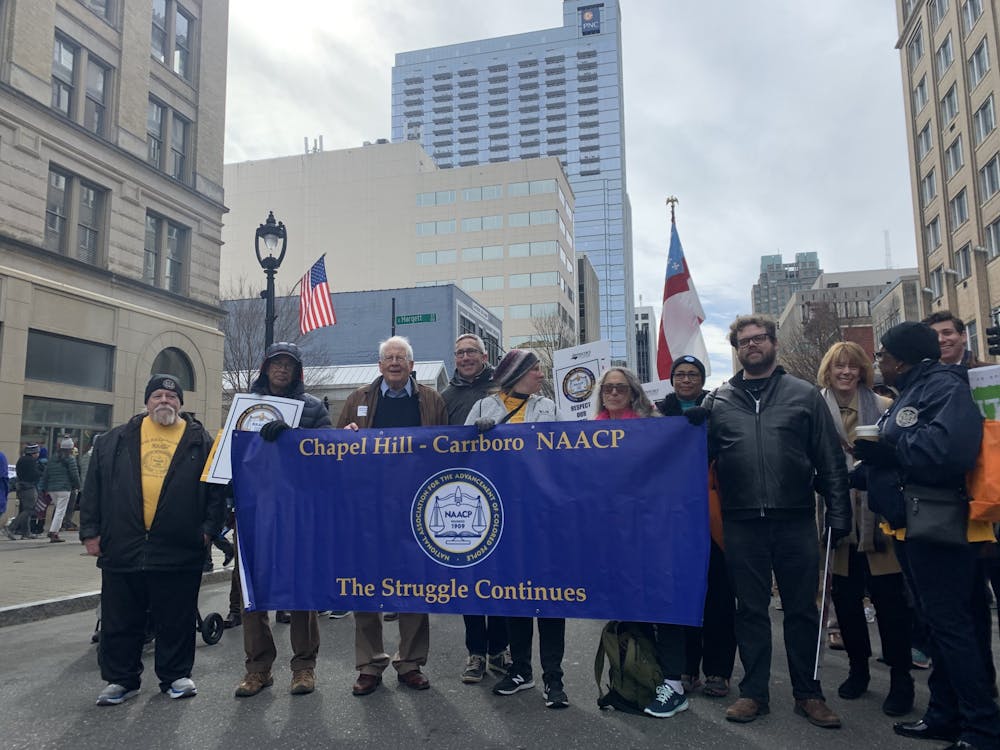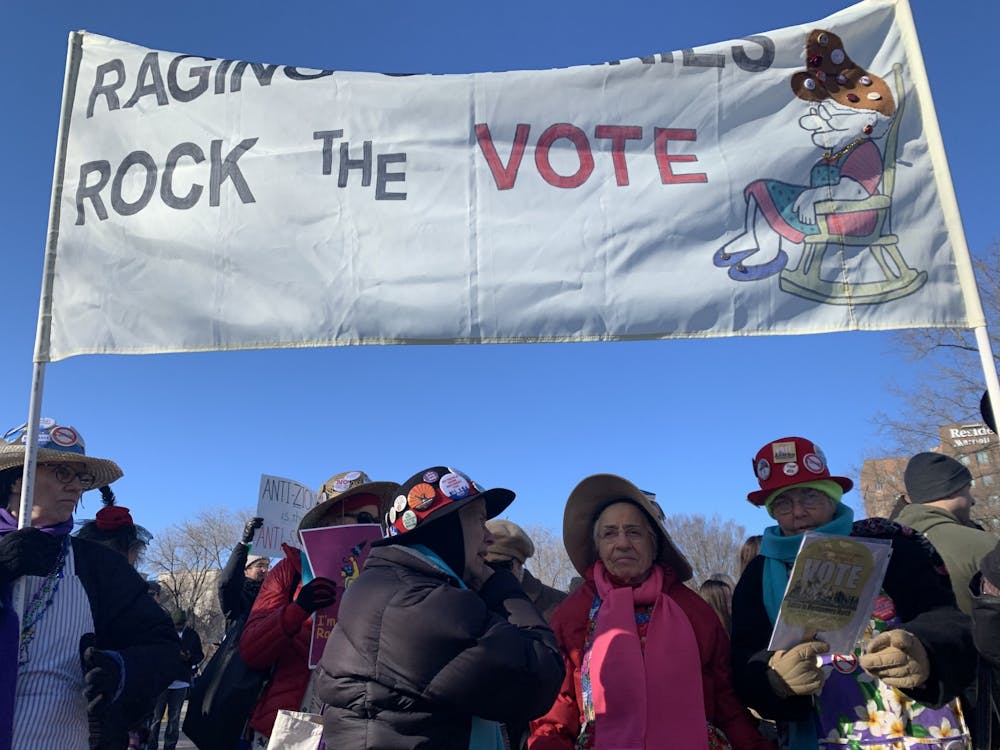Thousands of marchers from social justice groups across North Carolina attended the NAACP-sponsored "Historic Thousands on Jones Street" march in downtown Raleigh on Saturday.
The crowd of protestors, which stretched from West Morgan Street to East Hargett Street, included social justice advocates from Chapel Hill and all across the state.
The organization celebrated its 13th year of demonstration with speakers, a procession from Memorial Hall to the State Capitol Building and a rallying cry of “When we vote, we win.” Marchers held signs voicing concerns in a variety of social justice issues ranging from racial equity to "Medicare for all."
The speakers included Rev. William Barber, president of the North Carolina State Conference of the NAACP, and other social justice leaders and activists from North Carolina and beyond.
One of the speakers, Dontae Sharpe, was released from prison in August after a high-profile crime series, Final Appeal, led to his exoneration. This was his first speaking engagement after being released from prison after 25 years. Sharpe said students can play a crucial role in criminal justice reform.
“If any students want to get into criminal justice and become lawyers, judges or DA — if they do become that — it's important that they stay true to who they are and don’t get corrupted by the system,” Sharpe said.
The event also drew state political leaders, including U.S. Rep. David Price (D-Durham, Orange, Wake) and U.S. Senate candidates Cal Cunningham and Erica Smith. Price said he was proud of the march’s age diversity.
“There are issues that especially affect young people, and I think the rest of the country depends on young people to pick up the banner of the kind of country we want to be,” he said.
Sammy Slade, a member of the Carrboro Town Council, attended the march. He said one issue he is concerned about is environmental injustice.






